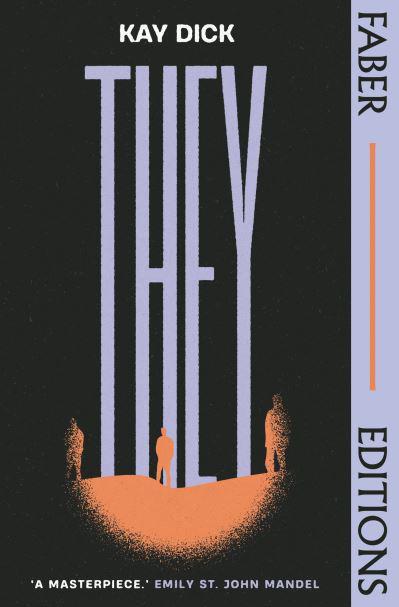They opens with what at first glance appears to be a gentle slice of English pastoral: a house in the country, a house that is described as ‘rather splendid’ and that from the roof enjoys ‘a full sight of the sea.’ The scene, with its seabirds and confluence of rivers and quiet conversation between friends, appears idyllic. And yet even here, in the first paragraph of this remarkable short novel, threats hover in the margins, not so much in the action as in the author’s choice of words:

A natural bird sanctuary, one was conscious of flight as part of the landscape.
What follows is a gradual winnowing away, a gleaning, as Dick puts it, of every freedom, of every unguarded action, a pushing back of life into its own dusty shadow. We find ourselves in a world in which artistic expression has been deemed unnecessary and dangerous for society. A growing band of human surveillance drones – the ‘they’ of the title – move through district after district, destroying artworks and burning books and banning music. Artists themselves are not harmed unless they physically resist or offer verbal objections, at which point reprisals are swift, brutal and unequivocal. Unless they appear at the beginning of a sentence, they are never capitalised. We have no idea if they are government-sanctioned, or self-appointed. Artists seek sanctuary in out-of-the-way places, rural enclaves and coastal settlements where the worst of the new laws have not yet come into effect.
We sense that it is only a matter of time before there is nowhere left to retreat to. As more and more places become unsafe, acts of defiance become smaller and more internalised. As time passes, it is not only creative work that is deemed inappropriate but more or less anything that speaks of individual, quiet enjoyment: living alone, walks in nature, the companionship of animals. Bands of ‘sightseers’ follow the gleaning parties, despoiling the landscape, holding rowdy gatherings and revelling in the bloodshed and censure meted out to dissidents. When they are not out on the streets looking for a bit of civil unrest, they are walled up inside their family homes, watching television.
I have seen some commentary on this book that suggests Dick’s vision of dystopia is simplistic and highly selective, that her characters are privileged and – ah yes, that weasel word again – elitist. I would argue that such protestations entirely misjudge the purpose and tone of They, which is a small masterpiece, the finest and most penetrative kind of allegorical SF. It is always tempting with literary dystopias, to demand that they be literal, to want to draw comparisons with one’s own time and place. There is no shortage of these in They, for which one could cite recent instances of drones spying on lone walkers in the Pennines, neighbours reporting on neighbours having a cup of tea with other neighbours, the equating of journalists with organised crime, the media trashing of impartial news broadcasting and the withdrawal of government support for English Literature as an academic discipline. The violent sanctioning of any form of personal expression in the name of spiritual appropriateness when it is in fact a blatant exercise in social control is happening to Afghan people and in particular Afghan women right now under the Taliban.
We will always find plenty of examples to choose from – that we cannot help doing so points to the fact that Dick’s novel is not out of date, as some have intimated, but timeless – but we should resist such simplistic reductionism. What we have in They is a powerful philosophical argument, a refutation of the will to power per se, an upholding of reason and personal liberty in the face of prejudice, of groupthink, of the unexamined urge to censure what is different. They stands also as a metaphor for itself: Dick, a queer writer who faced rejection and condescension as a daily reality, saw her work repeatedly belittled and sidelined, with They being described as ‘menopausal’ by a male reviewer in a national broadsheet.
And yet, its final words are hopeful; words of quiet yet determined resistance:
‘Hallo love’, I said, greeting another day.
It is important to point up Dick’s landscape writing as a salient feature of They. For Dick, noticing and valuing the natural world, as an essential source of spiritual renewal yes, but equally in and for itself, is not just prescient but an act of subversion, one that places They in its rightful place alongside other works of roughly contemporaneous and distinctly British science fiction such as Anna Kavan’s Ice, Christopher Priest’s A Dream of Wessex, Keith Roberts’s Pavane and Richard Cowper’s The Road to Corlay.
The story of how They was rescued from oblivion by a literary agent who happened to pick up a rare second hand copy in a Bath charity shop is beautifully told by Sam Knight in an article for The New Yorker, and elaborated upon by Dick’s champion Lucy Scholes in the Paris Review. The inspiration we can draw from Dick and from her writing – sparse, bold, direct, resolute and impassioned – is substantial, and I would recommend They to anyone who wants to learn more about how science fiction can still be ground-breaking and resonant without so much as a mention of new technology or alien planets.
We are lucky to have this book readily available to us again.